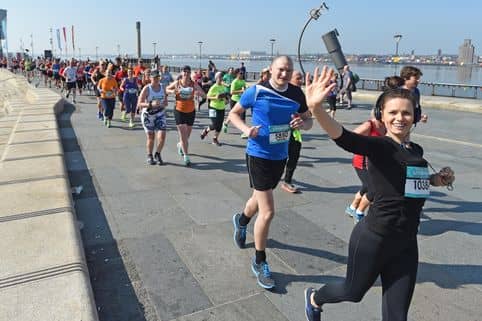
It is 3.15am and I have just woken from a fitful four-hour sleep. I am already wearing running shorts and I quickly pull on a T-shirt and step outside. It is pitch black and my breath turns to mist in the cold air. Fasil is washing his face at the outdoor tap. He has a night off his job guarding a half-constructed building and is staying with Hailye. He beams, clearly surprised that I kept my word about joining them for this session. “Ante farenj aydellum,” he says. “Jegenna neh”; you’re no foreigner, you’re a hero.
We jog slowly to Kidane Mehret church and down the asphalt hill in silence before Hailye turns, crosses himself and leads our first run up the hill. The only light comes from the occasional bare bulb hanging outside a kiosk. By the seventh or eighth rep, I have learned that the hilltop comes faster if you watch your feet, not the summit. After an hour, Hailye stops. “Buka,” he says. Enough. As we jog home, he tells me: “Now you should have a cold shower outside and then you should sleep. That’s going to be the most wonderful sleep."
He was not wrong. This training session was the start of the time – six months or so after starting fieldwork with Ethiopian long-distance runners in Addis Ababa – when Fasil started telling me I was habesha, a term denoting unified, proud Ethiopia. He joked that, when I came back to the UK, I would be able to run races and say: ‘Ciao farenj,’ at the beginning – “Bye-bye foreigners” – and win easily. “Ciao farenj” became something of a catchphrase every time we did a good training session. So, what is specifically Ethiopian about running up and down a hill at three o’clock in the morning?
Ethiopian (and Kenyan) running success is normally explained deterministically as originating in genetics and altitude (by sports scientists) or as a result of abject poverty. In fact, as was often explained to me, it was impossible for the poorest people to try to become runners, because they were unable to devote the necessary time to rest or eat good enough food. Our barber in Addis – who had tried to make it as a runner for a few years – said: “The problem of Ethiopians is lack of money,” before adding: ‘If there was money, everybody would run.”
The runners I lived and trained with did not believe in talent. They believed in “adaptation”, that anyone could learn to “follow the feet” of other runners, given enough time and the right disposition. They spent hours planning training sessions, seeking the right combination of environment and company for the maximum benefit. They were constantly weighing the value of various places: the “heaviness” of the air at Mount Entoto against the expanses of grassland in Sendafa where the “kilometres come easily”. The chill of the forest against the heat of Akaki, some 800 metres lower. It was not unusual for us to sit in a bus for two hours to get to training and take four hours to struggle home again. If the environment was a factor in their success, it was not a passive “natural” advantage – runners’ engagement with their environment was active and creative.
Conversations on the relative merits of locations could go on for hours. On one occasion, I woke up on Saturday morning to find Teklemariam – who lived 20km away in Legetafo – vigorously washing his face at the outdoor tap in our compound. “What are you doing here?” I asked him, bleary-eyed at 5.45am. “I came for the hill,” he said, before adding reverentially: “It is Tirunesh’s hill,” explaining that it was where the Olympic 5,000-metre and 10,000-metre gold medallist Tirunesh Dibaba used to train.
